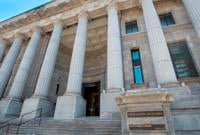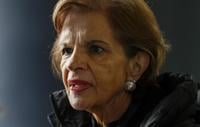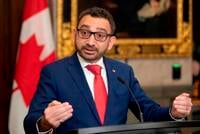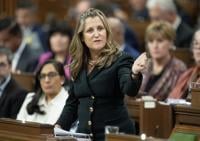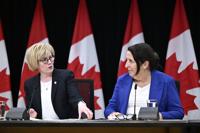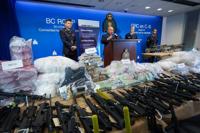MONTREAL - A Muslim organization and a civil liberties group asked for permission on Monday to appeal a Quebec Superior Court ruling that denied their request to suspend the province’s ban on visible prayer in public schools.
The şĂÉ«tv Civil Liberties Association and the şĂÉ«tv Council of şĂÉ«tv Muslims failed in June to have the province's ban suspended until their court challenge to the decree could be heard in full.
Laura Berger, a lawyer with the CCLA, said they sought permission to appeal because the full case won't be heard before late August, when students return to school from the summer break.
"Students are going to be impacted in a serious way," she said. "That will happen before we're able to get a full decision. So we're hoping to suspend the decree and the decision to apply it to students before that happens."
Olga Redko, a lawyer representing the two groups, told a Quebec Court of Appeal judge in Montreal Monday that the lower-court decision didn't properly consider the harm to Muslim students and the urgency of the situation.
"The judge himself found that the decree infringes on the affected children's freedom of religion," Redko said. But the judge, she argued, didn't sufficiently consider the consequences of that infringement when he determined whether the ban should be suspended.
Government lawyer Isabelle Brunet told the Appeal Court Monday that the lower-court judge properly applied the law, adding that the bar is high to suspend a government decree before the challenge to it is heard.
Brunet recognized that the ban limits some rights, but she said successive Quebec governments have decided to remove religion from public institutions. Suspending the ban, she argued, would prevent other students from attending entirely secular schools.
"Does the appeal have a chance of success?" she told the court. "The answer is no."
Stephen Brown, CEO of the şĂÉ«tv Council of şĂÉ«tv Muslims, said the province's ban on overt prayer in school infringes on fundamental religious freedoms and turns religious students into second-class citizens.
"The government doesn't get to tell me how to dress, the government shouldn't get to tell me how to eat, the government shouldn't tell you how to pray," Brown said in an interview outside the courthouse.
"And just because a couple of people may feel uncomfortable about seeing minorities pray in a way that they're not familiar, it doesn't mean that the government should be able to target children and take away their rights."
Justice Mainville said he expects to deliver a decision later this week.
This report by şĂÉ«tvwas first published July 24, 2023.


